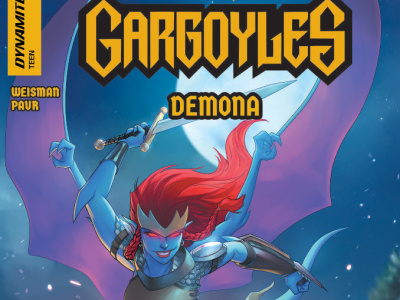Paul Levitz entered comics as a writer, rose to become Publisher of DC Comics, and is now exploring new territory as a writer. In this column, he looks at why the Direct Market played the role it did in American culture. For more on his background in that history, see “ICv2 Interview: Paul Levitz”). For more on the history of the Direct Market, see “Comics Direct Market 50th Anniversary”).
Comics would have survived. The medium is magic, and you have only to watch a kid drawing awkward pictures in their first schooldays to understand how deeply embedded comics are in our souls. But without the Direct Market, without the comic shops, the medium would not have thrived to evolve to its current wonderfully creative state.
But comics have thrived elsewhere without the Direct Market. France and the bandes dessinees. Japan and manga. Why was the Direct Market so vital here?
Americans aren’t big on reading, and don’t have a great respect for art in its varied forms. When the two most widely read forms of American comics were sliding to doom because of structural population and business shifts (newspaper comic strips literally shrinking away and the number of retail outlets for magazines and comic books dropping drastically), the latter decades of the 20th Century weren’t introducing potential new creators to the possibilities of comics. And the radical creative spark of the underground comix had already been snuffed out by changing regulations and puritanical authorities.
The comic shop became a safe haven for our most devoted readers, including those who would become the powerful voices of 21st Century comics. And without the Direct Market to service and support the comic shops, how many fewer and farther apart would those havens have been? Think how many of these passionate but precarious business we’ve lost in each convulsion of the distribution system (see 1995 or the last two years).
Without the support of the comic shops and their connection to the thinly spread early communities of fans, could we have taken the graphic novel from infrequent and largely unsuccessful experiments to being a solid and growing part of American publishing? It doesn’t seem like a likely scenario when you look at the stack of failed tries or creative triumphs that never reached a wide audience in the early years of the modern form.
We might have reached the moment when manga arrived on our shores fueled by the Japanese government’s initiatives, or when technology allowed the birth of the webcomic…but we might not have had the ambitious pack of distinctively American talents ready to build on those opportunities.
I’ve been lucky enough to watch all this from perspectives that allowed me unmatched access to the hard data of American comics, from Phil Seuling and Jonni Levas’ office porch in Seagate, Brooklyn in the infancy of the direct market, to my desk in long decades at DC, where I worked not only to have the house of Superman prosper, but to have the field of American comics grow. Many, many people have helped make that happen over the last 50 years, including names and roles largely forgotten, and none of us can claim disproportionate roles. The iCv2 series has profiled a few of us who made a difference, but only a few, and without touching on the writers, artists and editors whose creative courage made it all possible and worthwhile. Imagine this journey without Art Spiegelman, Chris Claremont, Frank Miller, Alan Moore, Neil Gaiman, Jeff Smith or Raina Telgemeier, to just name a handful of them.
Like most of my colleagues in the field, I’m profoundly grateful to the past and present people who made this all possible: from entrepreneurs like Phil to the people behind the counters telling customers what the next great read was, to the readers whose patronage fueled it all. Comics stayed healthy to grow into this era of diverse content, contributors, forms and delivery methods. If you’re reading this, I suspect you were part of the journey. And I believe the best is yet to come.

Column by Paul Levitz
Posted by Paul Levitz on November 15, 2023 @ 6:26 pm CT
MORE COMICS
Ten Speed Graphic Fall 2025 Catalog
July 11, 2025
Ten Speed Graphic has released its Fall 2025 catalog.
From Dynamite Entertainment
July 11, 2025
Check out the preview for Gargoyles: Demona #1, published by Dynamite Entertainment.
MORE COLUMNS
Column by Scott Thorne
July 7, 2025
This week, columnist Scott Thorne looks at the effect of Diamond Comic Distributors' bankruptcy on the games industry.
Column by Rob Salkowitz
June 30, 2025
Columnist Rob Salkowitz talks to a mid-sized publisher who told him we are at "DEFCON 2, if not DEFCON 1."








